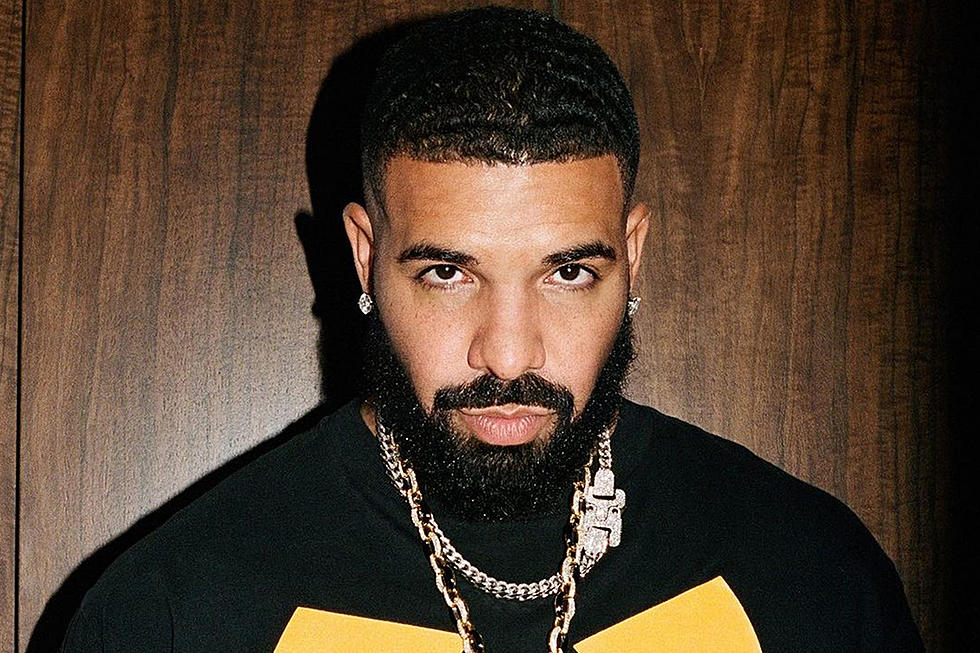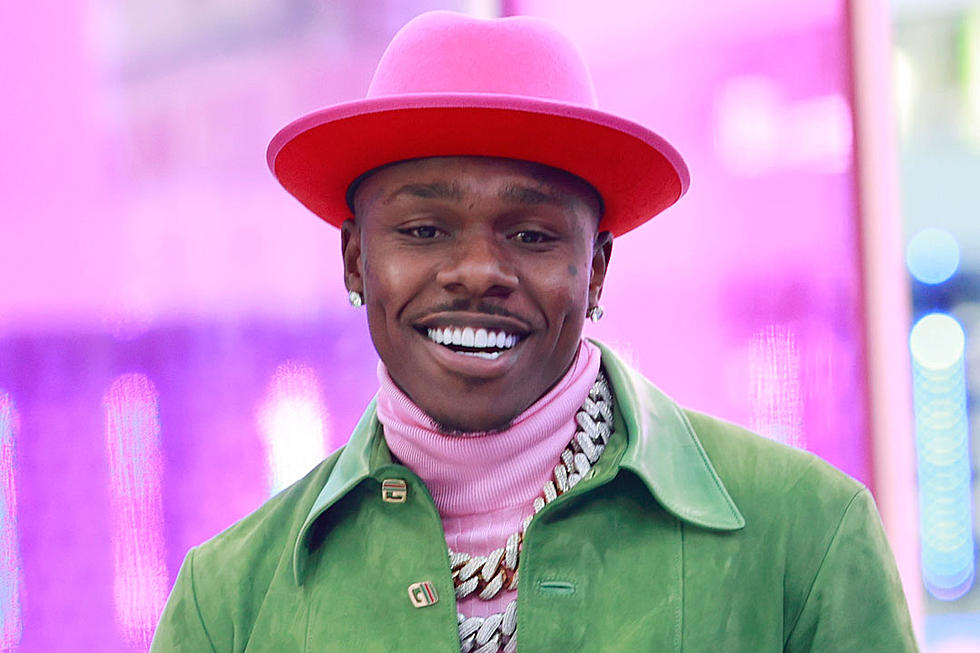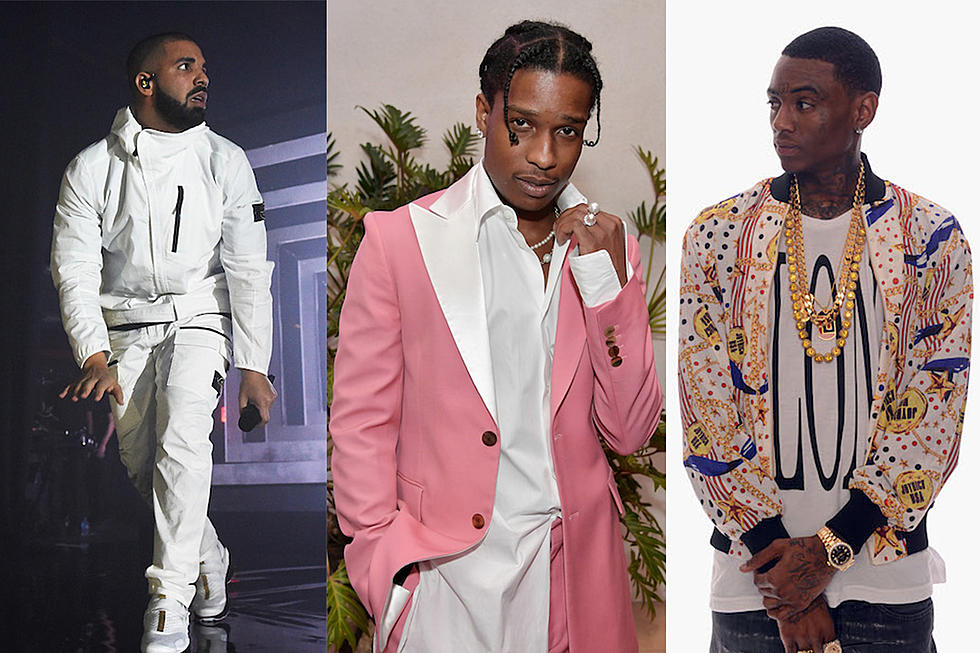
Why Time Magazine Should’ve Included Hip-Hop in Its Most Influential 100 People of 2019 List
First published in 1999, Time magazine’s annual 100 Most influential People list has made a name for itself by highlighting many of the world’s most brilliant thinkers and moguls. In its 20-year run, it's even done a decent job of shining a light on some of hip hop’s greatest contributors: OutKast, Diddy, Kanye West, Jay-Z and Kendrick Lamar have all graced the list in years prior.
It’s hardly news that rap, which surpassed rock to become the biggest music genre in the U.S. in 2017 and continued its ascent last year, is more popular than ever. Nine out of 10 of the most listened-to artists of 2018, including Drake, Migos and Cardi B, fell into the R&B/hip-hop category according to a mid-year Nielson report. And even beyond hit records, artists like Meek Mill, 21 Savage and Nipsey Hussle made some of the year’s biggest headlines by leading conversations about prison reform, immigration and community engagement, respectively.
With two full sections dedicated to artists and icons, it’s only natural to expect that Time would highlight at least some of these accomplishments in its 2019 roundup. And while certain omissions are forgivable (magazine production schedules tend to run several months in advance), not a single rapper was included on the list this year.
Time maintains that of its 100-person selection, individuals are recognized for changing the world regardless of the consequences of their actions. (A request for comment for this editorial went unanswered). The logic explains choices like North Korea dictator Kim Jong-Un, who has appeared on the list eight times since 2011, and Donald Trump, who has been included every year since 2016.
The rule also gives weight to why Kanye should have been included. Regardless of what you think of 'Ye’s views, his controversial MAGA endorsements and tweetstorms about “dragon energy” have ignited global discussions about mental health and racism. 'Ye kept the conversations going on his 2018 album Ye, opening up about everything from bipolar disorder to suicide. That project anchored a month-long rollout of seven-song releases from the likes of Pusha-T, Nas and Kid Cudi, in the process challenging the trend of overloading tracklists to boost streaming numbers.
At a time when streaming services and artists continue to be at odds, Jay-Z made equally impactful moves at Tidal with the launch of Unplugged, a $1 million grant program designed to support emerging musicians. Meanwhile, he officially became part of a billionaire couple with Beyoncé, reaching even higher mogul status as the pair released Everything is Love (which won a Grammy for Best Contemporary Album) and sold-out show dates on their OTR II stadium tour. In the midst of it all, he executive produced Rest in Power: The Trayvon Martin Story, a harrowing six-part documentary about the shooting of the unarmed 17-year-old boy killed by George Zimmerman in 2012. Jay became one of the biggest supporters of 21 Savage after his ICE arrest earlier this year, also backing Meek Mill after his controversial probation violation of 2017. He penned a New York Times Op-Ed and offered millions in legal support, likely playing a major role in the Philly rapper's release from prison last year.
Meek himself would be a prime hip-hop candidate for Time's list of influential people, as he became the face of criminal justice reform. Along with Jay-Z, Meek founded the Reform Alliance, an organization aimed at reducing the number of people serving unjust parole and probation sentences. His imprisonment encouraged hundreds of thousands to protest in his hometown of Philadelphia while the popular hashtag #FreeMeek shed light on the millions of convicts who live in fear of being sent back to prison for minor violations. Meek proudly embraced his new role as social justice warrior.
“Although I’m blessed to have the resources to fight this unjust situation, I understand that many people of color across the country don’t have that luxury,” he said in a statement issued the week of his release. "I plan to use my platform to shine a light on those issues."
While both 'Ye and Jay have appeared on the ranking in years prior, Time has proven that it has no issues featuring the same artists in multiple issues. Taylor Swift, who is featured this year as an icon, was also included on the list in 2010 and 2015. Meanwhile Lady Gaga graced the rankings for the second time this year.
Yet even though no rappers are represented, hip-hop’s massive cultural influence can still be seen peaking through the crevices of the 2019 list. Ariana Grande, who is featured this year in the artist category, has increasingly dipped into hip-hop sounds. She toyed with trap beats and rapping on her album Thank U, Next. Meanwhile Soulja Boy, Princess Nokia and 2 Chainz all accused Grande of biting their flows on her hit record “7 Rings.”
Fueled by a history of racial injustice in the music industry, the inclusion of Grande alone highlights the ridiculousness of not including a single rapper in Time magazine's Most Influential People list. In a year when rap artists dominated the charts and led positive global change, Time’s omission of hip-hop renders the list a shortsighted documentation of the people who are helping to shape our world. —Claudia McNeilly
See 20 of Your Favorite Rappers Naming Their Favorite Rappers
More From Q92










